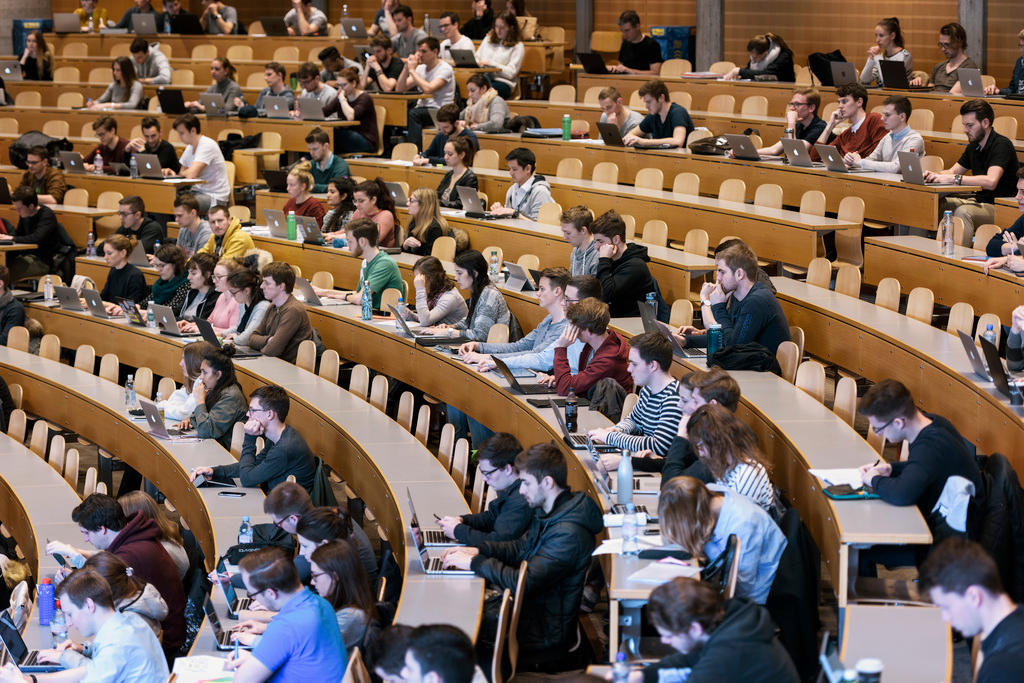Half of Swiss to have higher education degrees by 2037

The Swiss population’s education level will rise even further over the next 20 years, says a government report. The reason – demand from employers.
By 2037, almost half the population aged 25-65 is predicted to have a tertiary-level qualificationExternal link – either a degree or an advanced professional diploma for those having done vocational education and training (VET).
In 2017, 43% had an equivalent qualification, according to the government’s report on demographic development and educationExternal link, which was published on Wednesday.
The number of qualifications gained at other educational levels is expected to remain stable.
More students
Overall, demographic change – spurred on by a higher birth rate between 2003 and 2016 – will result in more people in education, including in schools (until 2030) and apprenticeships (from 2020).
The number of students at Swiss universities and higher education institutions should “after decades of moderate growth, significantly increase (+21% between 2017 and 2037)”, the report added.
Swiss universities have already posted higher student numbers, with some, like the University of Bern, having recently expanded its campus.
+ How Swiss universities are ‘full to bursting’
Overqualified?
The expansion in student numbers has already prompted fears that the classic apprenticeship – Switzerland’s renowned dual system of education combined with working in a company – will be under threat as more people opt for the academic route.
+ Read more about this dual system here, which two thirds of school leavers currently choose
However, the report stated that the Swiss education system was – and will remain – in line with labour market demands, so that “people in Switzerland can basically work in the professions for which they are qualified”.
“Switzerland is not at risk of having an overqualified population and the expected rise in the number of people with tertiary education seems to be in line with the higher need for highly qualified manpower.”
German doctors
In terms of sectors, the report predicted that more people would study IT and communications technology and healthcare.
Fewer people are expected to train for electrical, engineering, manufacturing and mining vocations. The report noted, however, that all sectors had specific jobs with a higher and lower demand.
Certain professions still need to import foreign staff due to shortages, especially in the health, IT and process technology sectors. It is not uncommon to be treated by a German doctor in a Swiss hospital. In fact, so many German doctors have moved to Switzerland that the German health minister recently called on them to come back to Germany.
+ German doctors a topic at WEF
How the supply and demand situation will pan out in future, “depends on how migration develops and how successful the country is at continuing to bring highly qualified people to Switzerland for high-need sectors”, the report pointed out.
But migration is not the only factor which is difficult to predict – the effects of digitalisation are also unclear at the moment, it concluded.

More
How much tech should be in Swiss classrooms?

In compliance with the JTI standards
More: SWI swissinfo.ch certified by the Journalism Trust Initiative











You can find an overview of ongoing debates with our journalists here . Please join us!
If you want to start a conversation about a topic raised in this article or want to report factual errors, email us at english@swissinfo.ch.